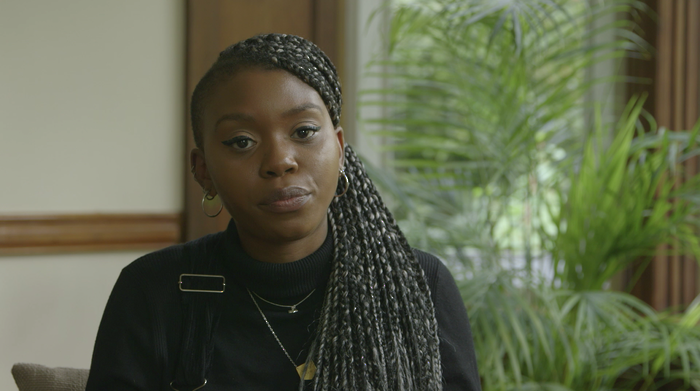Cambridge's Disciplinary Procedure
Centralised support offered for victims of sexual assault and harassment
The launch of the ‘Breaking the Silence’ campaign marks the formal introduction of a student-staff relationship policy and other preventative initiatives

Cambridge University has established a policy on staff-student relationships, marking the university’s first formal approach to relations between students and employed figures of responsibility, along with a number of other initiatives intended to convey the university’s ‘zero tolerance’ stance on harassment and sexual assault.
The new campaign, titled ‘Breaking the Silence’, will be formally launched on 24 October, and primarily takes the form of a website, www.breakingthesilence.cam.ac.uk, which will collate existing policies and channels for help with new initiatives to be rolled out later this term. It is hoped that the website will serve as a memorable, assertive symbol for all students and staff – a single portal for policy information, incident reporting, preventive training, and, direct links to routes of support for victims.
The widely-publicised campaign comes at a time when the ‘#metoo’ campaign is dominating social media, and American film producer Harvey Weinstein faces serious allegations of multiple incidents of sexual harassment over almost three decades.
Earlier this year, Varsity reported on a University survey which revealed that 3% of the 6,000 participant Cambridge students had reported sexual assault, with female students seven times more likely to have been the victims of sexual harassment, and nearly six times more likely to have been the victims of sexual assault, as male students.
‘Breaking the Silence’ marks the first decisive action by the University to instill the university’s stance on harassment and sexual assault in the minds of the university community, and to simplify the routes for seeking help and information. It is also the first major campaign under the tenure of new university vice-chancellor Stephen Toope, who told Varsity: “Cambridge prides itself on being a leader, academically, in terms of research, educationally. It has to be a social leader as well, tackling tough problems such as sexual harassment. And I think that the leadership of the University has to send the right signals and has to be committed to directly addressing these challenges.
“Dealing with sexual harassment is a responsibility for everyone in the community. People won't come forward, there won't be an open discussion, unless there's an environment in which people feel at least relatively safe. So each and every one of us has to try hard to create that environment.”
The staff-student relationship policy, available on the ‘Breaking the Silence’ website, comes after a Freedom of Information Request submitted to all UK universities by The Guardian in March which revealed that 32% of UK universities, including the University of Cambridge, had no formal policy on emotional or sexual relationships between students and staff. The report also found that there had been 6 formal allegations of staff-on-student harassment at the University from the 2011-12 academic year to March 2017, with 5 subsequent investigations and 2 staff members reportedly leaving or changing jobs.
The new policy “discourages” intimate relations of any kind between students and members of staff, “particularly where there is a real or perceived conflict of interest”. It is stipulated that “any such relationships have to be disclosed by the staff member to the University and the staff member must withdraw from any professional duties that could lead to accusations of unfair or preferential treatment.”
Another key factor of the campaign is the bolstering of training programs for staff and students. A flagship project is the ‘Bystander Intervention Initiative’, a program of workshops focusing on equipping students to safely intervene in situations that may lead to harassment or sexual assault. A series of four two-hour workshops will be trialled in Michaelmas and Lent at seven colleges in Cambridge - Pembroke, Jesus, Selwyn, Girton, Queens', Wolfson, and Sidney Sussex, with students from Corpus Christi also participating.
Developed by the University of the West of England, the workshops are tailored to UK universities, created following the success of similar programs in North America. In April, a Varsity interview with ex-student and sexual assault survivor Nathalie Greenfield probed why policies surrounding harassment and sexual assault at universities are far more common on American campuses than British ones; “The UK never caught on to Title IX”, Nathalie noted, the section of the United States Education Amendments of 1972 which states: “No person in the United States shall, on the basis of sex, be excluded from participation in, be denied the benefits of, or be subjected to discrimination under any education program or activity receiving Federal financial assistance.”
Jan Brighting, facilitator of the Intervention Initiative at Pembroke College, said: “Through the Intervention Initiative, we will try to give students the confidence, in a safe environment, to practice bystander intervention skills so they can challenge or avert a situation.
“Being a bystander is not about walking up the street and seeing a situation and tackling it, it’s about making an intervention, a small distraction, within a student’s friendship group - it’s not about putting people at risk at all.
“It’s about changing and challenging some of the social norms around behaviours, and giving students the skills and confidence to do that.”
The ‘Good Lad’ scheme is based on a similar premise, and will be rolled out in sports clubs across the university. The University Sports Centre and Cambridge Hub are also collaborating with the Good Lad Initiative to establish a facilitator hub in the city.
Staff will also participate in a harassment prevention programs, ‘Where do you draw the line?’, and ‘Dignity at Work: Preventing and Managing Bullying and Harassment Complaints training for key staff’.
Online consent training will also be made available for all students via Moodle, and key faculty and college staff will be trained on how to deal with student disclosures of sexual assault. In partnership with Cambridge Rape Crisis Centre, the University is running a series of two hour workshops for all College and University staff regarding how to appropriately respond to a disclosure of sexual assault or rape.
The new changes follow a successful bid for funding to HEFCE in March, which secured an additional £87,000 for the university to invest in such initiatives, and the establishment of the central Office of Student Conduct, Complaints and Appeals (OSCCA) in December 2016. OSCCA offers guidance on a range of student issues from exams to intermission, and provides students with the option to submit formal harassment and sexual misconduct complaints involving other Cambridge students, and pertaining to members of staff.
Its establishment represented a significant step towards the University proactively addressing harassment and sexual misconduct in Cambridge. Prior to its introduction, no formal universal disciplinary body existed in the University, leaving the welfare of students at in the hands of individual colleges, many of which still lack formal harassment and misconduct policy.
Further, a new position of ‘sexual assault advisor’ in the University Counselling Service was advertised in September; however, an appointment is yet to be made.
The new post has been established in order to “supplement and bolster the advice and support available to a student,” and provide a source of specialist help for student victims of sexual harassment or sexual assault.
In a comment to Varsity, a University spokesperson clarified that “The post-holder will not be necessarily trained to the same in depth level in counselling, as it is not a counsellor’s post.”
“The post-holder will give advice to students about their reporting options, however, the advisor will not be involved in the decision making process of the reporting procedures of the university.”
Lola Olufemi, Cambridge University Students' Union women's officer said: "Sexual misconduct is often viewed as something that's difficult to tackle but difficult problems are not unsolvable problems. A lot of people think that because sexual misconduct happens on such a large scale individual actions make no difference.
"But one of the best ways to challenge anything is to start small and to challenge in the spaces you're in. That is how you begin to change a culture. That is the message I want students to take away from the campaign."
 News / Colleges charge different rents for the same Castle Street accommodation2 March 2026
News / Colleges charge different rents for the same Castle Street accommodation2 March 2026 News / News in Brief: waterworks, wine woes, and workplace wins 1 March 2026
News / News in Brief: waterworks, wine woes, and workplace wins 1 March 2026 News / Climate activists protest for ‘ethical careers policy’1 March 2026
News / Climate activists protest for ‘ethical careers policy’1 March 2026 News / Private school teacher who lied about Cambridge degree barred from teaching27 February 2026
News / Private school teacher who lied about Cambridge degree barred from teaching27 February 2026 News / Angela Merkel among Cambridge honorary degree nominees27 February 2026
News / Angela Merkel among Cambridge honorary degree nominees27 February 2026










